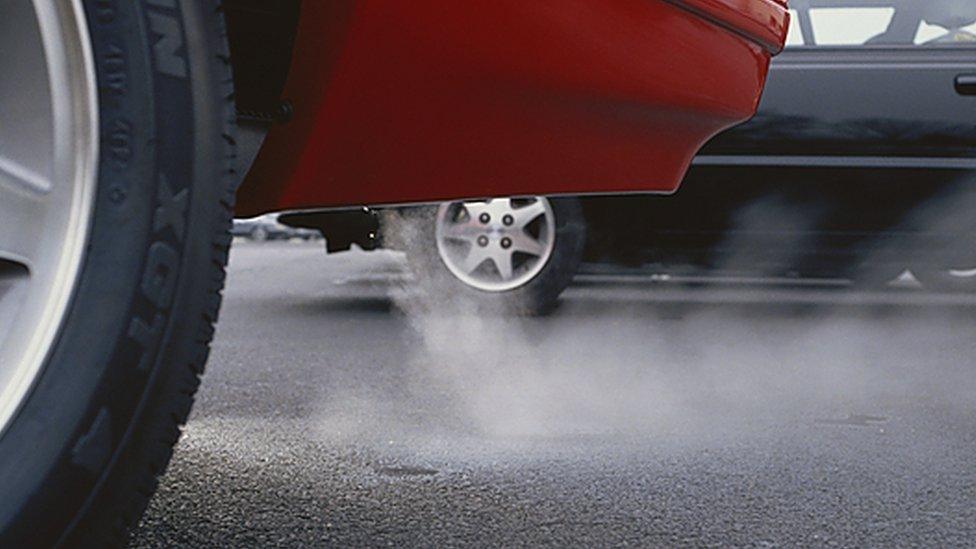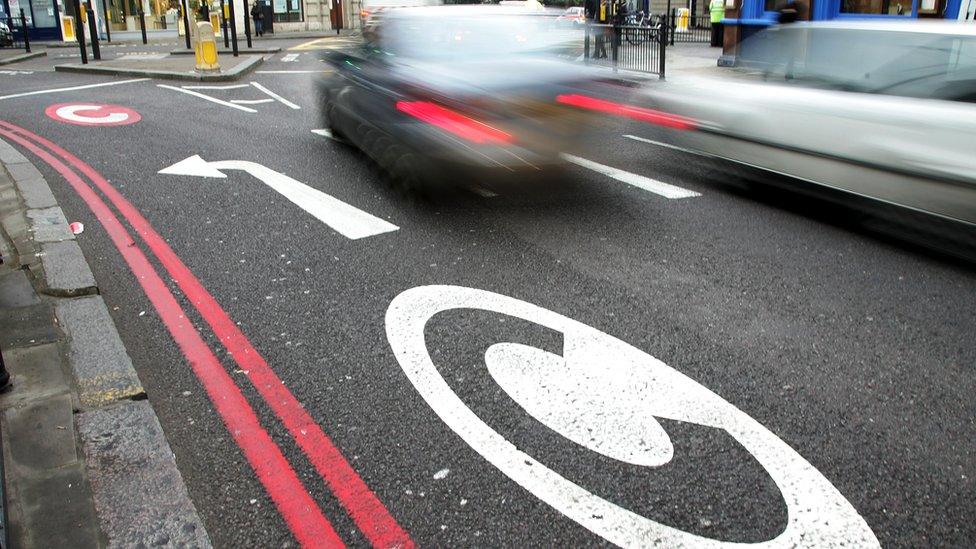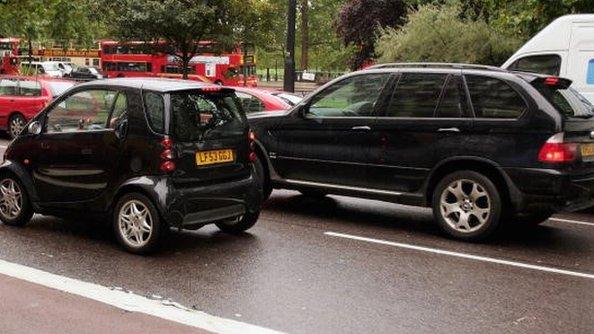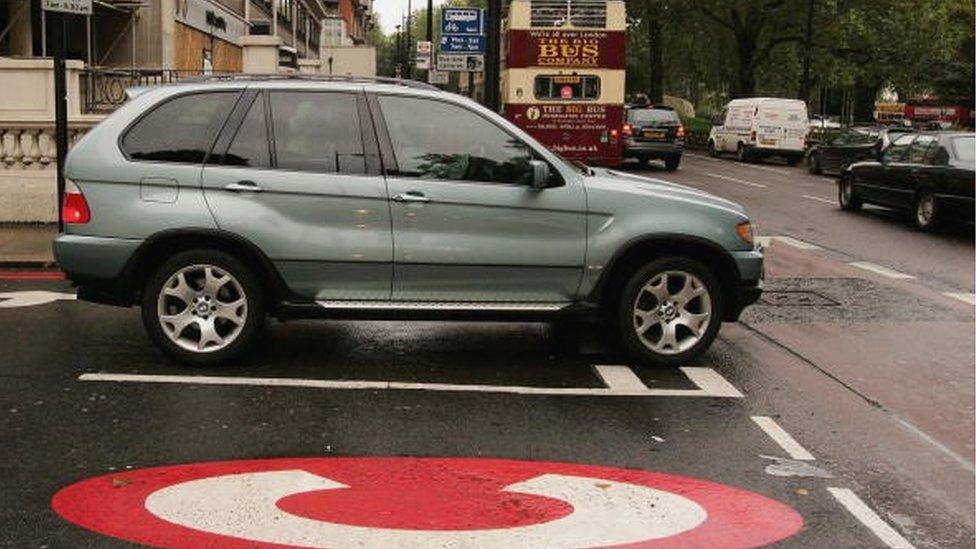Polluting cars 'T-Charge' to be rolled out in autumn
- Published

The so-called T-charge will see the owners of older, more polluting cars face an extra £10 fee for entering the congestion charge zone
Older, dirtier cars will have to pay an additional charge to drive in central London from 23 October, the Mayor of London has announced.
The so-called T-Charge will see the owners of older, more polluting cars face an extra £10 fee for entering the congestion charge zone.
City Hall estimate that up to 10,000 vehicles every weekday will be liable for the new emissions levy.
Critics said its impact on reducing pollution will be "negligible".
Under the proposals, the owners of diesel and petrol vehicles manufactured before 2005 that do not meet Euro 4 emissions standards for nitrogen oxide (NO2) and particulates will be required to pay.
A free online vehicle checker, external on the Transport for London website has also been launched to allow drivers to check whether their vehicle will be affected by the "Toxicity charge".

The Mayor of London, Sadiq Khan, said: "It's staggering that we live in a city where the air is so toxic that many of our children are growing up with lung problems."
"The T-Charge is a vital step in tackling the dirtiest diesels" he added.
The mayor has also called on the government to put in place a national diesel scrappage scheme to help people replace vehicles affected by his plans.
City Hall said its research showed people living in London's most deprived communities, often by busy roads, are on average exposed to 25% higher levels of harmful NO2 pollution.
Conservative London Assembly environment spokesman, Shaun Bailey, said Transport for London's (TfL) consultation, external showed the T-Charge will affect just 7% of vehicles entering the Congestion Charge zone.
"Under assessment by his own people, the mayor's flagship air pollution policy is predicted to have only a 'negligible' impact on air quality, reducing poisonous NOx gasses by just 1-3%," Mr Bailey said.
- Published10 October 2016

- Published12 January 2017
